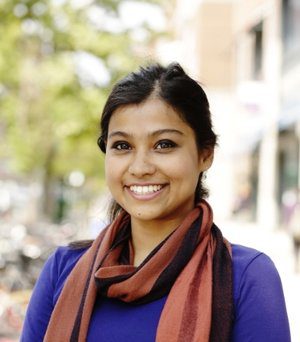
Fatima Zahra, Research Affiliate at the Mittal Institute and a Postdoctoral Research Fellow at Harvard University, has been working to design and implement socially responsible programs to address the loss of human potential and enhance life outcomes among the most marginalized. Recently, she was in Bangladesh for about three months to work at the Rohingya refugee camps and uncover ways to improve the mental and fiscal wellbeing of the refugees who live there.
Zahra works with Reshmaan Hussam (Harvard Business School), Gregory Lane (American University), and Erin Kelley (World Bank), and together they are working with local partner organizations ICCDR, B, Innovations for Poverty Action, Pathshala, and Terre des Hommes to ensure the proper design, implementation, and success of culturally-responsive interventions that will enhance mental health and psychosocial wellbeing in the camps. “Our main partners are the Rohingya people from whom we are learning about their needs and with whom we are working to address the current challenges,” Zahra said.
During their time in Bangladesh, Zahra and her team have been working on two types of interventions. The first intervention took place in 2018, which studied idleness in adult men and women. According to Zahra, those who live in the camps do not have many employment opportunities — especially women. While men can find occasional work in the camp, they cannot work outside of the camp. Last November, the local research team completed a time-use survey with 300–400 men and women to learn how they spend their time, followed by an intervention launched during the team’s time at the camps.
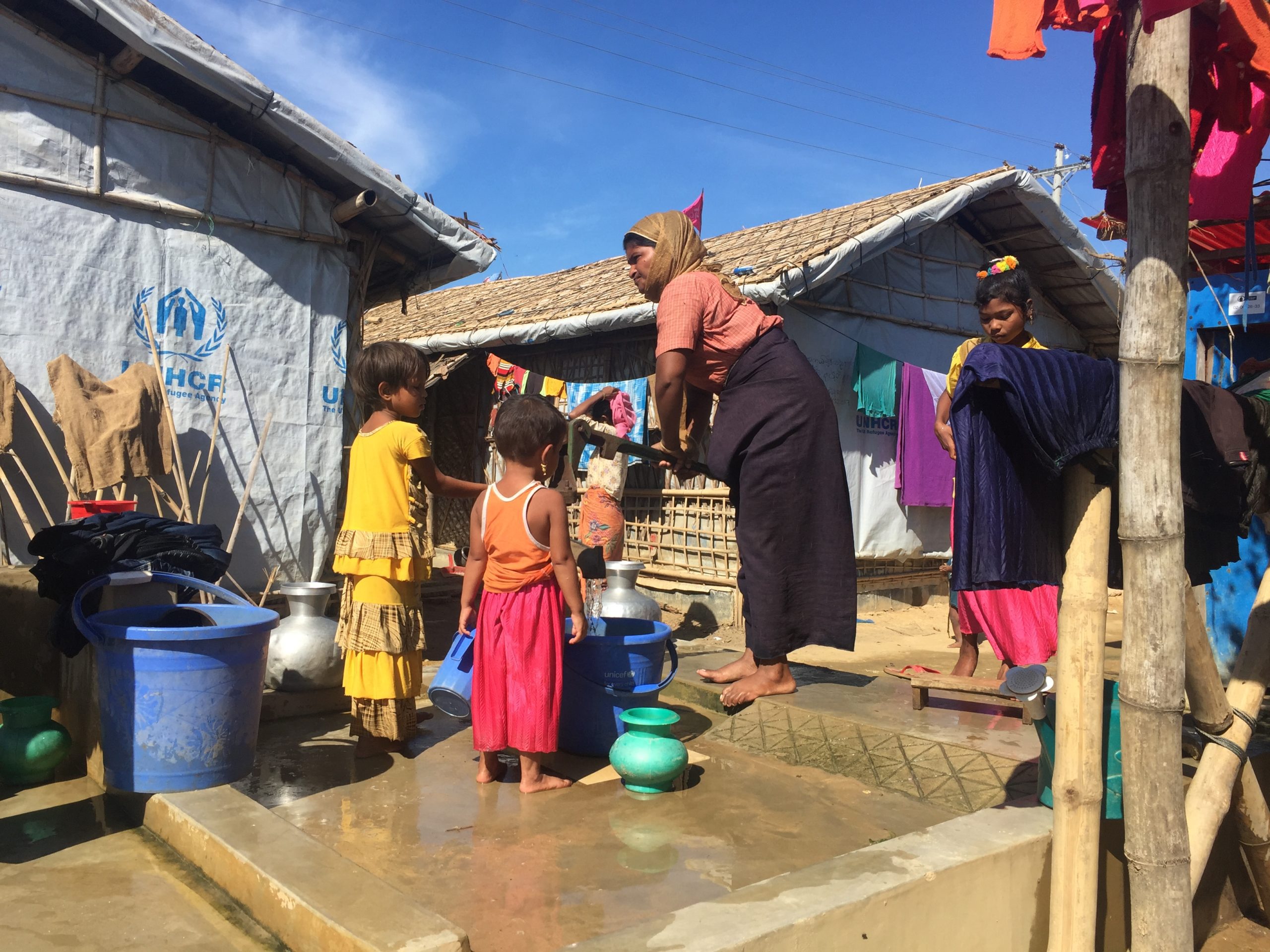
Her team offered work to men and women, providing temporary employment for cash. The team is looking beyond the monetary benefits of work: they’re also offering the control group payment for no work, and varying the amount of payment given to see how differing degrees of compensation have an effect. That way, they team can observe if there is a benefit of work in the camp outside of monetary terms. For the positions that offer compensation, a varying schedule is provided to see if the certainty of work influences mental wellbeing and psychosocial outcomes. “We’re looking to see if they are more social, empowered, have more agency, feel more in control of their lives, feel better mentally because of work, and feel that they have a purpose,” Zahra said.
“If someone is working, does that help their mental health?” Zahra asked. “Mental health is a big issue coming from traumatic experiences, and many of them experienced ethnic cleansing where a lot of them lost family and friends. How do you cope with not having productive employment after that? There’s plenty of time to think about the past and things that aren’t helpful. What are they doing when not working? Ultimately, we’re trying to address if work has mental benefits for these individuals.”
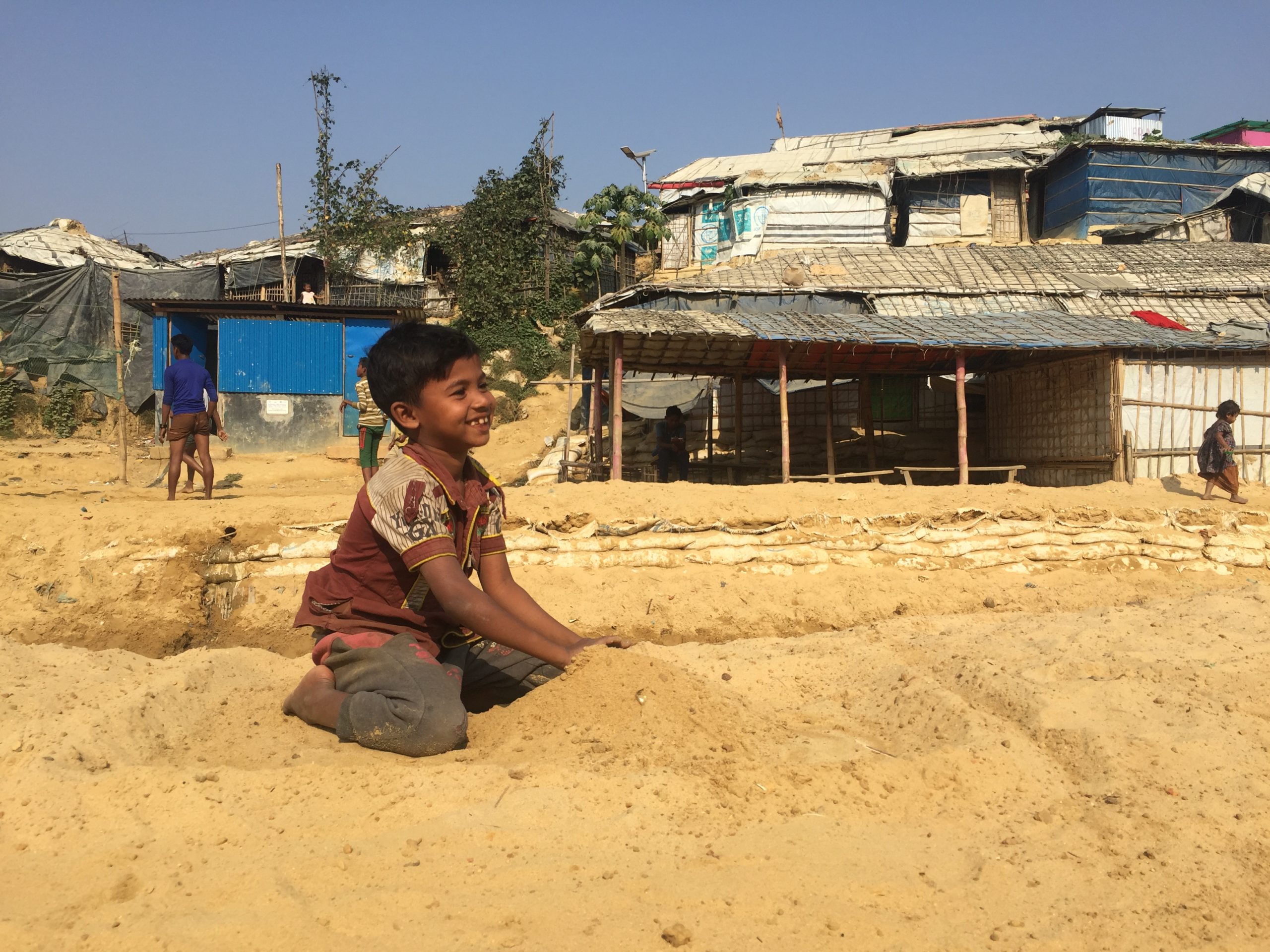
Throughout the camps, children have no access to formal schooling. Sometimes, NGOs will provide some type of education for children between grades 1–5, but there is no formal system to separate them into different grades. “In a school, everyone is in the same classroom learning the same thing, and what they’re learning is not relevant to finding jobs or learning Bangla. They’re learning basic math and English. Some in the camp can afford private tutors, but most can’t afford that,” Zahra explained.
“Most kids spend all day, every day playing in the dust or helping out with household chores, but they’re not learning skills that are usually thought of as basic human needs. We’re trying to see if we can contribute in this space where children don’t have access, and it’s very difficult to aspire to a future where you see yourself employed. One goal of the workshop is to help children envision a future as a productive member of society.” The team will try to help the children see the camp as home, to be present in the moment, and try to learn positive ways to cope with past and present trauma. They’ll also work on building skills or finding jobs within NGOs, to see if this has any effect on mental health.
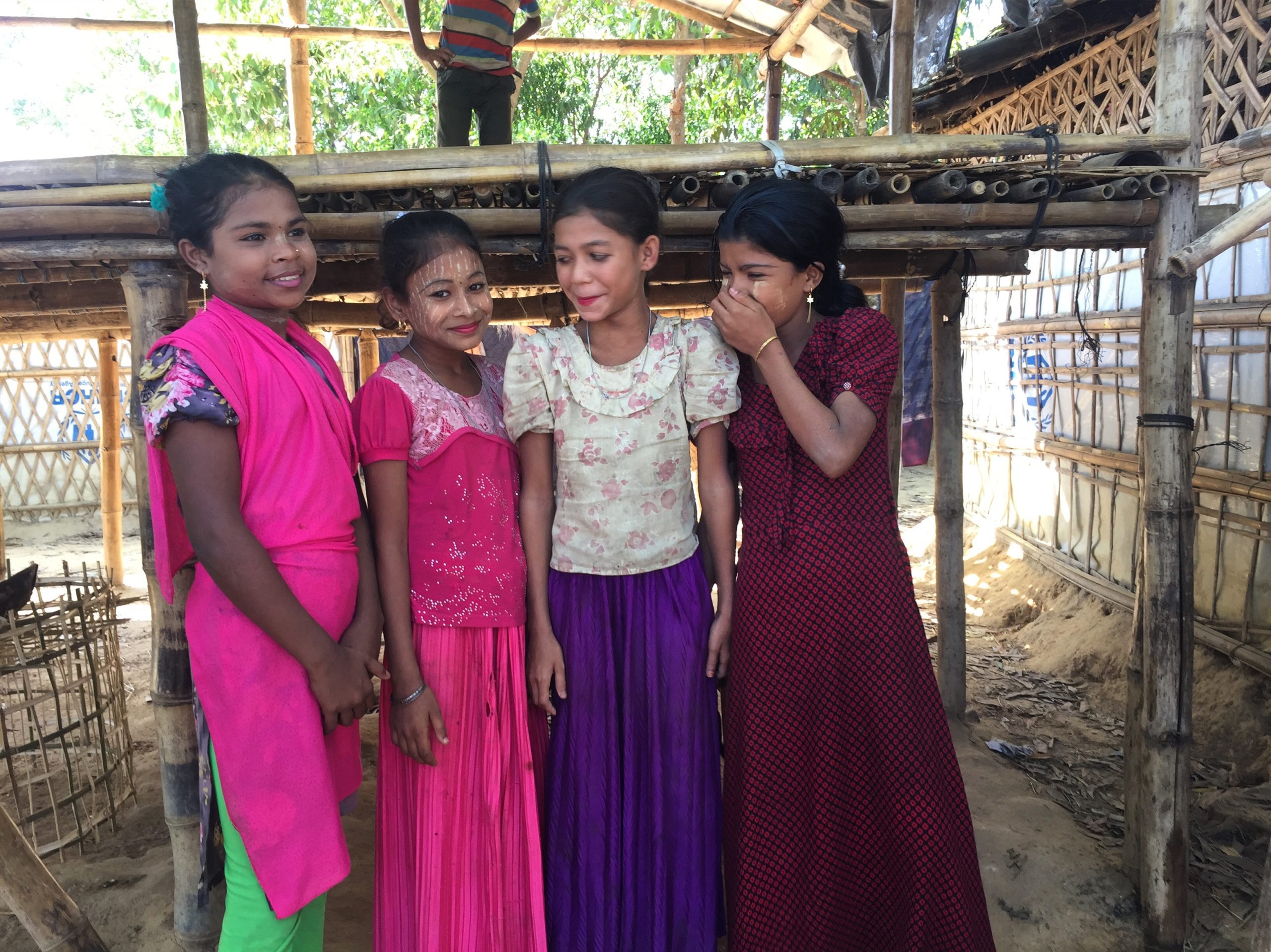
“I’m learning from this experience that life in the camp is very difficult. What is seen as idleness in an urban setting is not idleness in the camp. There’s always something to do, but what you’re doing and how that’s helping you is the question. It’s about how you’re spending your time, and is it helping you? We want to see if the work we provide them is improving mental health, not just financial health,” explained Zahra. Before implementing the full randomized controlled trial (RCT) the team will continue to hone the instrument so it is culturally relevant and designed and scaled in a socially responsible manner.
The team is in a constant state of learning as they continue their project. There are 25.9 million refugees around the world, from the Middle East to Asia and Africa to eastern Europe, and no refugee camp is like another. “Some have more intense experiences with distress and trauma than others. Drawing all of them in a single stroke would be a really disastrous error. We won’t recommend taking our exact intervention at the Rohingya camps to other places in the world without considering the cultural norms and beliefs of those places, but there’s a common theme across humans who suffer migration when forcefully displaced. Your life loses stimulus, and you don’t have work. And I think we can and should address that,” Zahra said. “We want the world to think about refugees as people, not as statistics or part of someone’s research. These are normal people who have lost their access to basic rights.”
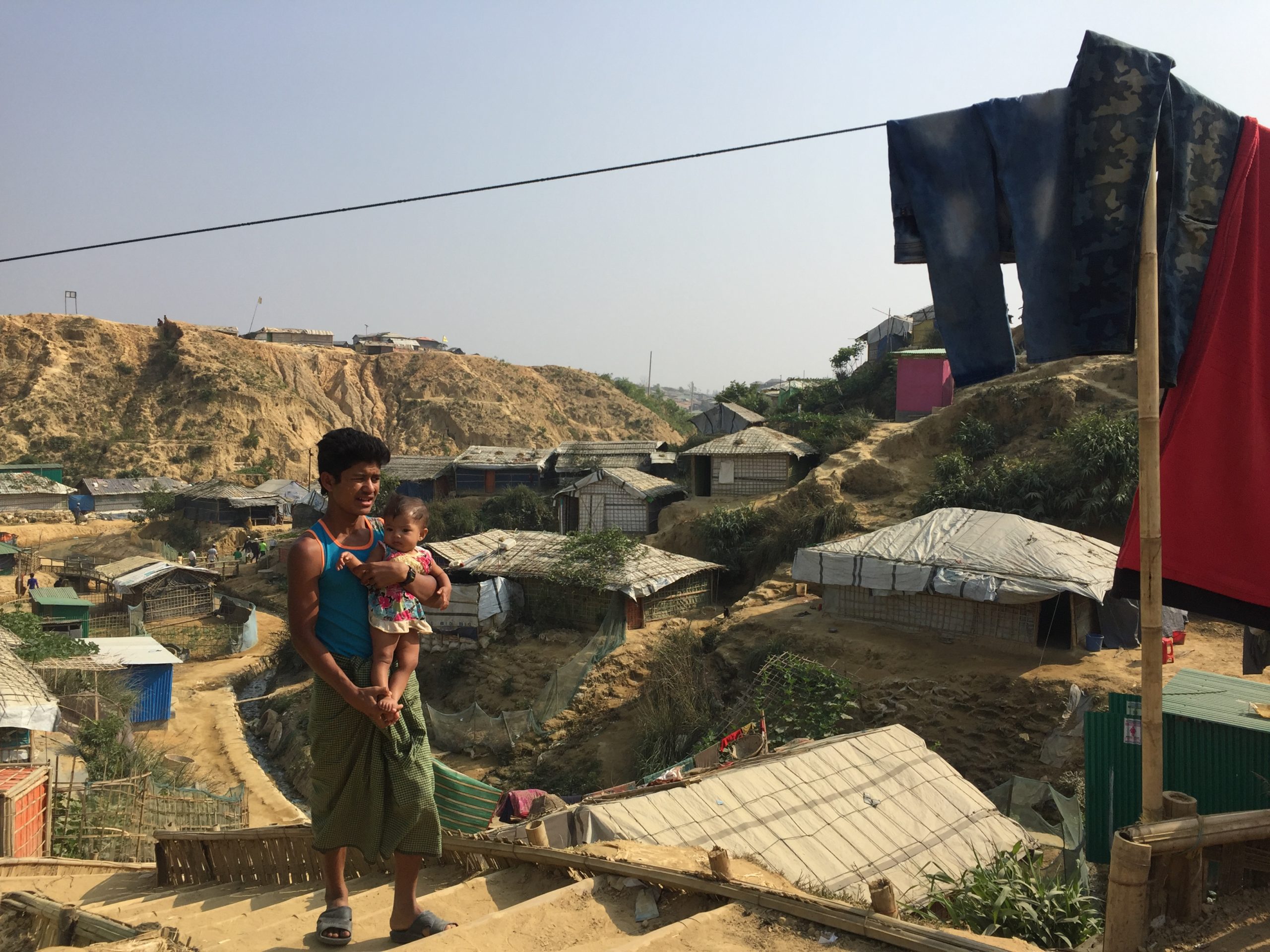
“That’s where we’re intervening. We’re hoping that our lessons can one day be disseminated so everyone else can learn how to approach the mental health and forced idleness around the world in other camps.” Moving forward, Zahra will be working with a local videographer to capture the lives of Rohingya adolescents in the camp in her next field trip to the camp.
All photos taken and provided by Fatima Zahra.
☆ All opinions expressed by our interview subjects are their own and do not reflect the views of the Mittal Institute and its staff.
